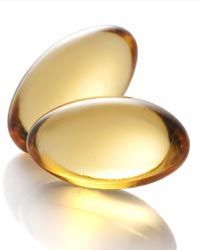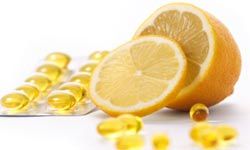While there's no stopping Father Time, there are steps you can take to delay some of the less desirable effects he has on your appearance and your health. While on some mornings you may feel every one of your years, our growing understanding of the importance of healthy living, diet and nutrition means you don't necessarily have to look every one of your years.
Your appearance is a pretty fair indicator of the state of your health, and it's a way to maintain good health. Your skin keeps viruses and bacteria out of your body -- dry skin can literally develop into a crack in your body's defenses.
Advertisement
But even when it's healthy, your skin wrinkles, discolors and sags as it ages. Fortunately, there are ways to repair and firm up your skin, improve its color, and reduce some of those age-related wrinkles. Certain vitamins have anti-aging qualities that improve not only your appearance, but your health in a number of ways.
So what are 5 anti-aging vitamins that you should know about? Keep reading to find out.



